Community College
Course Redesign
Institute
in American Political & Social Thought
About the Institute
Empowering community college faculty to use discussion-based approaches in teaching American political & social thought.
Spring 2025 Institute at Hostos Community College
April 23rd to 26th
The Community College Course Redesign Institute in American Political and Social Thought aims to help instructors in history, political science, and related social sciences explore discussion-based approaches to studying transformative works in American political and social thought. Community college faculty participants will support each other as they explore readings and discussion prompts based on the work of authors like Plato, Locke, Wollstonecraft, Phillis Wheatley, Publius, Tocqueville, Maria Stewart, Abraham Lincoln, Frederick Douglass, Sojourner Truth, W.E.B. Du Bois, Dr. King, and other works, which reflect contemporary engagement with this tradition that the participants selected for this institute will bring to the discussion.
The Institute Offers

Hybrid Format
Institute work takes place both online and in-person at host institutions.
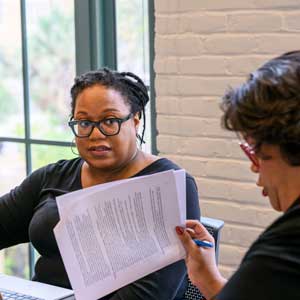
Curriculum Development
Participants will develop new syllabi that include transformative texts, preparing students to engage in meaningful discourse on critical issues.
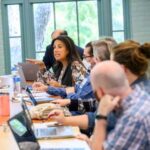
Broad Impact
This initiative seeks to enhance civic knowledge and discussion skills for all community college students.
apply for Spring 2025 Institute
Application deadline: February 26th, 2025
Location: The event will be held at Hostos Community College in New York City, New York
Dates: April 23rd to 26th, 2025
Why study transformative works in American political & social thought?
Providing our students with essential opportunities to engage directly with the texts and ideas that shape our political and social lives.
Together, we will help provide our students with essential opportunities to engage directly with the texts and ideas that shape our political and social lives. In an era of declining civic knowledge, fueled by a lack of civic education offerings and increasingly acrimonious polarization, the task of grappling seriously with American politics and history is especially vital. Classes in these areas need to provide opportunities for meaningful discussions where students encounter opposing beliefs and engage in collegial discourse. Political questions invite disagreement, and our task is to equip students with essential skills for citizenship in a pluralistic republic like our own. The work we will do together will help introduce you to discussion-based pedagogical techniques that can help you effectively explore texts in American political and social thought with your students in class discussions. You’ll engage in small group discussions with your peers on curriculum development and design, and help one another consider how best to help our students more freely and openly express themselves on political and social issues about which there is principled disagreement.
faculty say
I really loved that all of the faculty were community college faculty as to a certain extent we have the same sort of demographic of students versus a 4-year college or university. This made it much easier to think about what would work/ wouldn't work.
2024 APST Participant
One of the best parts of the Institute for me was reconnecting with text in fresh ways, sparking new ideas on how to weave it into my own content. I also loved how the group discussions were so diverse—it really helped me see different perspectives on how to align content vertically with core subjects. Those conversations were both insightful and practical, giving me plenty to bring back to the classroom.
2024 APST Participant
The small group discussions were fantastic! Keep doing these -- they allow more voices to be heard.
2024 APST Participant
This institute ran like a well-oiled machine. I loved that all of the transportation and meals were taken care of (and good!) It allowed us to focus more on the topics of the workshop itself. I also liked the dinners to be able to get to know the other participants/ facilitators in a more relaxed setting.
2024 APST Participant
I personally felt that the small groups were the most meaningful part of the workshop and getting to spend time with other faculty and hear their perspectives about the texts, as well as what they did within their own classrooms and other readings that they would pair the readings with. I very much appreciated the exchange of ideas and was able to think aloud about how I would want to incorporate these texts into my own class.
2024 APST Participant
2024 APST Participant
Institute Goal
The main goal of our time together in the institute is to creatively explore with one another how we might effectively include discussion of these and related texts in the courses we teach and to support one another in sharing pedagogical approaches to discussion-based learning as we become more thoughtful about the seven Institute Guiding Questions identified below. The institute is organized to help each individual faculty participant realize their own vision for a curriculum that broadly addresses these Guiding Questions. We are committed to respecting and supporting the academic freedom of each participant in their course redesign.
Guiding Questions
Transformative Works
Transformative Works in American Political & Social Thought
Classical Context through 1950
The readings and questions here are intended to help inspire curriculum exploration and discovery. We invite you to explore these selections and hope that you may make some new discoveries on how to approach these texts and those like it, as we look forward to exploring the contemporary voices that engage with the American political tradition that participants will bring to each institute.
Classical Context
Is it possible for a political or social order to treat all of its members fairly, even those who greatly challenge it? What contemporary ideas about the Good Life (i.e., political or social ideas people may have about the best way for humans to live) do you think should not be tolerated in our society, and what would the strongest Apology (defense speech) be for living according to one of those visions?
Antigone believes that there is a difference between what is legal and what is just. What is the difference between the “legal” and the “just”? How does she know that Creon’s command regarding her brother’s burial is unjust? Creon argues that whatever he, the king, commands isjust because it is the command of the ruler. How does Antigone respond to this? Are there laws in our society today that are legal but nerveless unjust? How do we accurately tell the difference between just and unjust laws?
Spartan society under the laws of Lycurgus lacks many ills that plague our own, such as lawsuits, fights over money, obesity, jealousy, infidelity, substance abuse, unemployment, unsatisfying jobs, childhood illness and more. How did Lycurgus eliminate these ills from Sparta and was it worth it?
Enlightenment Political Thought
Alexander Hamilton argued that the teaching of Chapter 14 presented an “absurd and impious doctrine”, which he believed Hobbes advanced because he “disbelieved the existence of an intelligent superintending principle, who is the governor, and will be the final judge of the universe.” Do you agree with Hamilton that this disbelief would lead one to conclude that human beings have the, “moral power to deprive another of his life, limbs, property or liberty?”
How does Locke understand the basis of human equality? How would you state his argument for why human beings are naturally equal in a way that would be clearly understood by people today but that is also faithful to what he says in Chapter 2?
Montesquieu praised the separation of powers in the English constitution. How do you see the principle of separation of powers functioning in the U.S. today, especially in light of recent debates over the use of executive orders, the independence of the judiciary, or Congress’s role in checks and balances? Are these branches of government maintaining a proper balance of power?
Can equal rights and dignity be established and secured on anything other than ideals that are regarded as universal and natural?
The Founding & Ratification of The Constitution
What are the self-evident truths discussed here? What does it mean for a truth to be “self-evident”? Do you think most people in the US today still believe that these are truths and if so, that they are self-evident, regardless of their political affiliations?
Hamilton argues that the primary aim of society is, “moral security, for our lives and properties,” and that “such security can never exist, while we have no part in making the laws that are to bind us and while it may be the interest of our uncontrolled legislators to oppress us as much as possible.” Which groups or individuals might truthfully advance this same objection today and why?
What do you imagine Abigail Adams’ perspective would be on contemporary issues related to race and gender, given what you’ve learned about her thoughts on such issues from reading her letters to her husband, John?
In her poem, To the Right Honourable William, Earl of Dartmouth, Wheatley argues that her “love of freedom” was born from her experience of being kidnaped from Africa and brought to the United States enslaved, “I then pray others may never feel tyrannic sway.” How does her poetry contribute to the fight for freedom, both in her time and in ours?
Why do you think they chose to write “more perfect” rather than simply “perfect.” What might that tell us about their expectations for the government they sought to create? What change to the constitution would you recommend to make it “more perfect”?
What is Madison’s definition of a faction and what are the examples he provides of factions? Why do factions pose such great problems in popular governments? According to him, every individual may be considered a member of one or more factions. To which faction do you belong and in what respect is your faction “adverse to the rights of other citizens, or to the permanent and aggregate interest of the community”?
Why do the anti-federalists believe that ambitious, self-interested people will be attracted to serve in positions of authority under the proposed constitution? If they met our political leaders today, would they feel vindicated for expressing these fears?
How optimistic was Jefferson that the Declaration’s principles were taking root around the globe? Do you think this optimism was misplaced? What was Jefferson referring to when he mentioned “monkish ignorance and superstition” as a force keeping men in chains?
Observations on A New Nation, A New World and New Challenges
What threats do Individualism and the myopic pursuit of material well being pose for democracies? What structural, institutional and/or cultural guardrails does Tocqueville observe that contain these problems, and do you see them functioning in that way in the contemporary US?
If Stewart were speaking to an oppressed or marginalized group today, how would she exhort them to most effectively confront their situation? What concrete steps might she argue that this group take towards that end, given what she has written in these essays?
What does Mill mean by tyranny of the majority? In what political and social environments does tyranny of the majority arise?
In what areas do people have the most fear about freely expressing themselves? When have you kept quiet there out of fear of appearing out of step with prevailing views?
The Promise of Liberty
Lincoln claims that “a house divided against itself cannot stand”, and that our nation must be united on an issue as fundamental as the morality of slavery if it is to remain standing. Why does Lincoln believe that a nation must be united about basic moral principles? What fundamental issues are dividing our nation today, and what might unity look like about one of them?
In Chapter 7, Douglass explains how he traded bread for the “more valuable bread of knowledge” with hungry children who could teach him to read, suggesting that physical nourishment is less important than spiritual sustenance. How is your education aimed at providing both the bread of material well-being and the bread of knowledge?
questions forthcoming
questions forthcoming
Cooper argues that, “Any act performed by an ignorant slattern is menial, while no amount of indignity can really degrade a soul truly in possession of itself through scientific development of its faculties.” What kind of education does Cooper believe is necessary to develop these faculties? Are you receiving that kind of an education today?
What kind of education does Du Bois think is required for a free people? What sorts of things do they need to study and how should that education be conducted? Is your education an education for freedom?
Which of your enemies would be the hardest to love, and what would you have to do or see to be able to love them? Think of someone whom you dislike very much. Attempting to practice what Dr. King preached here, consider one element of good in that person. What is that good thing?
Contemporary Voices
Texts Will Be Recommended By Participants
Participants in each institute will be encouraged to recommend contemporary works (post-1950) and discussion questions that will help students engage with the American political tradition and the Institute's seven Guiding Questions. Before the institute begins, participants will be asked to share suggestions, including texts like book chapters, essays, opinion pieces, as well as works of art such as short stories, poems, music, visual art, or other items, that reflect an engagement with the tradition of American political thought, as our participants understand that. These texts and questions will be shared with all participants and form the basis of about 25% of each institute's program.
Curriculum Advisory Committee
The institute curriculum and approach to discussion-based study was developed by TGQF leadership, and draws from over a decade of experience leading class discussions on transformative texts and ideas, as well as developing community college faculty training and fellowships to help colleagues successfully do the same. Many of the discussion questions we will explore in this institute originated from ideas shared by the over 60 community college faculty members who completed TGQF summer curriculum redesign workshops since 2022, Great Questions Journey faculty members who teach discussion-based government courses at Austin Community College, and from Community Seminar discussion questions. The following individuals advised TGQF on the institute curriculum and design.
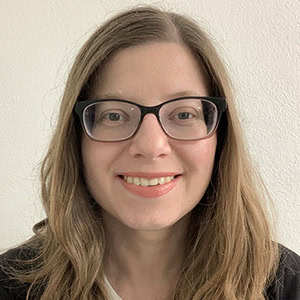
Rita Koganzon
North Carolina
Associate Professor, School of Civic Life and Leadership, University of North Carolina at Chapel Hill
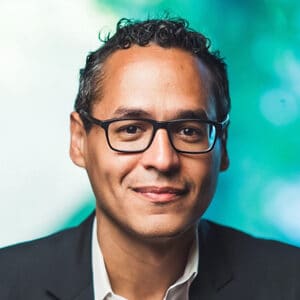
Roosevelt Montás
New York
Senior Lecturer in American Studies and English at Columbia University

Shellee O'Brien
Texas
Adjunct Professor of Government at Austin Community College in Texas
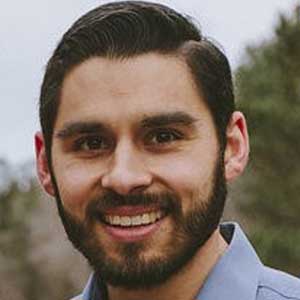
Raúl Rodriguez
Texas
Assistant Professor in the School of Civic Leadership at the University of Texas at Austin
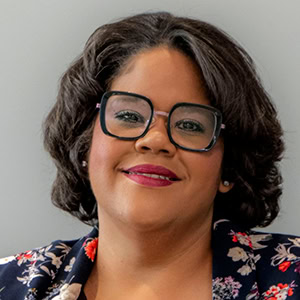
Emily Stacey
Oklahoma
Professor of and Program Coordinator for Political Science at Rose State College in Oklahoma
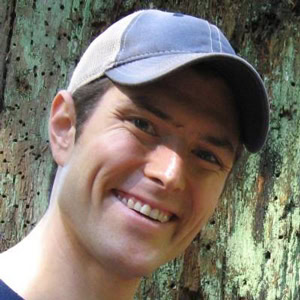
Mark Urista
Oregon
Speech Communication Faculty and Faculty Advisor for the Civil Discourse Program at Linn-Benton Community College in Oregon
Institute Details
$1,500 Stipend
Participants who successfully complete all institute requirements will receive a stipend, presently set at $1,500 for the currently scheduled institutes. Requirements include full participation in all online and in-person activities and meeting all other expectations and deliverables detailed below.
Accommodation & Travel
Participants or their institutions will be responsible for their travel to the institute, but hotel accommodation and meals will be covered by the program.
Expectations & Deliverables
- Attendance and participation in the curriculum redesign institute, including a pre-session Zoom meeting, in-person convenings, and a post-session Zoom meeting to discuss the progress of teaching the class.
- A redesigned course syllabus in a course meeting general education requirements at an accredited US community college in either History, Political Science, American Studies, Sociology or related disciplines, at least 20-30% of the content to include discussion-based study of transformative texts in American political and social thought.
- Teaching at least two sections of the redesigned course in the two semesters following their institute participation.
- Participation in research on program impact, including asking students to participate in confidential survey research.
- Presentation to departmental colleagues at home institution after teaching the first section of the course.
Spring 2025 Instructors
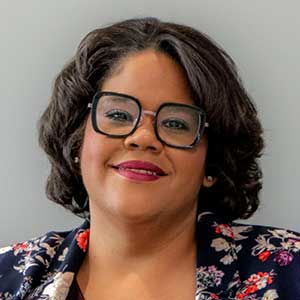
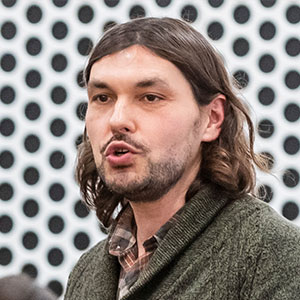

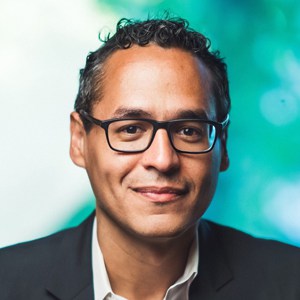
apply for Spring 2025 Institute
Application deadline: February 26th, 2025
Location: The event will be held at Hostos Community College in New York City, New York
Dates: April 23rd to 26th, 2025


